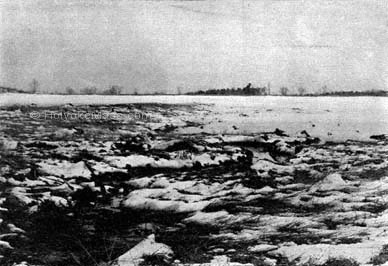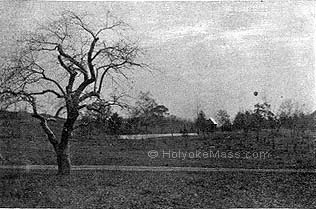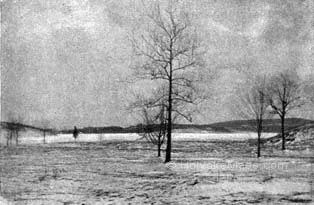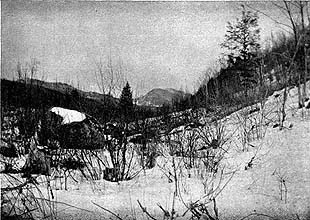
A Winter View Across Woodland Lake.
|

Mountain Park Meadows.
|
What people call your advantages are really your disadvantages; for, while you are having a good time here hanging on the fences, sunning yourselves in the vacant lots, watching the ball games, or joining in laughing over the minstrel shows and plays at the theatre, reading the novels and the story papers, spending your money for little luxuries, the poor boys and the country boys are learning to work; learning to put themselves right down to hard tasks; learning that disagreeable things can be done by sticking to them; learning, in their small gains, what a costly thing money is; learning the great and profitable lessons of labor, and patience, and frugality, and steadfastness; and so, when you and they start out together in the great arena of the world’s work, they go right past you, and the first thing you know you are nowhere, and the world of work and the prizes of industry and skill and power are in their hands.
You often see two young men beginning together in business, with equal chances and equal abilities, the only difference between them being that one of them has learned during his boyhood what work means, and the other has not. Presently this last one find that there is much that is disagreeable and confining and tedious about his work; that much is required and little given for it; and he gives up and is off in search of something pleasanter. It is not easy to find; and so he tries one thing after another, sticking to nothing long and getting no mastery of anything. His gains are therefore small, but his wants are many; his expenses exceed his income; he is always in debt, and by and by he gets utterly discouraged. Luck is all against him, he says, it is no use to try, and he sinks down into helpless poverty, or perhaps plunges into vice or crime. A great many of the forgers or defaulters come from this class. The other young man, meantime, sticks to his work. He knows that work is not always agreeable, but he is not going to let the task conquer him; he will conquer the task. He has done it before and can do it again. Success does not come all at once, but he can wait as well as work. And it comes to him by and by. He does not need to go in search of it; promotion seeks him. Prosperity does not need to be run after; it follows.
Now, boys, you are thinking by this time that, for those of you who are so unlucky as not to be obliges to earn your own living, there is a dubious outlook. Well, I have only been giving you the facts. I did not invent these facts; I simply have reported them as honestly as I could, and you certainly can afford to look them honestly in the fact. I want to guard you, however, against one or two wrong inferences.
You must not infer that all the country boys who come to the cities become rich and influential men. There are tens of thousands of them who become paupers; there are tens of thousands of them who come to the city because they do not like to work, and because they imagine that city folks have an easy time of it. They come to grief, of course, and it serves them right.
Neither must you infer that all poor boys in the cities become leading merchants and leading lawyers. Tens of thousands of them are growing up to be paupers and criminals.
Neither are you called upon to believe that these boys from whom we have hears, liked the sever and confining labor at which they were kept in their boyhood. Some of them disliked it less than others did, no doubt; but most of them did hard work, not because they enjoyed it, but because they were compelled to do it.
What these facts and figures teach is simply this — that a boy in city or country, who is trained to work, who gets the discipline of will that comes with that training, has eighteen chances of succeeding in life, when the boy who has not had this training has but one chance.
They teach, also—and this is the fact I want you all to notice—that you cannot afford to go with the majority of your class, unless your class greatly changes its habits; that if you do about as the other fellows of your class do, you will come out about where the other fellow of your class come out— and that is nowhere—cripples, beaten, distanced in the race of life.

Snow Fields.
|

Among the Hills — Mountain Park.
|
© Laurel O’Donnell 1996 - 2006, all rights reserved
This document may be downloaded for personal non-commercial use only
and may not be reproduced or distributed without permission in any format.
This is an edited adaptation from the original publication.
|